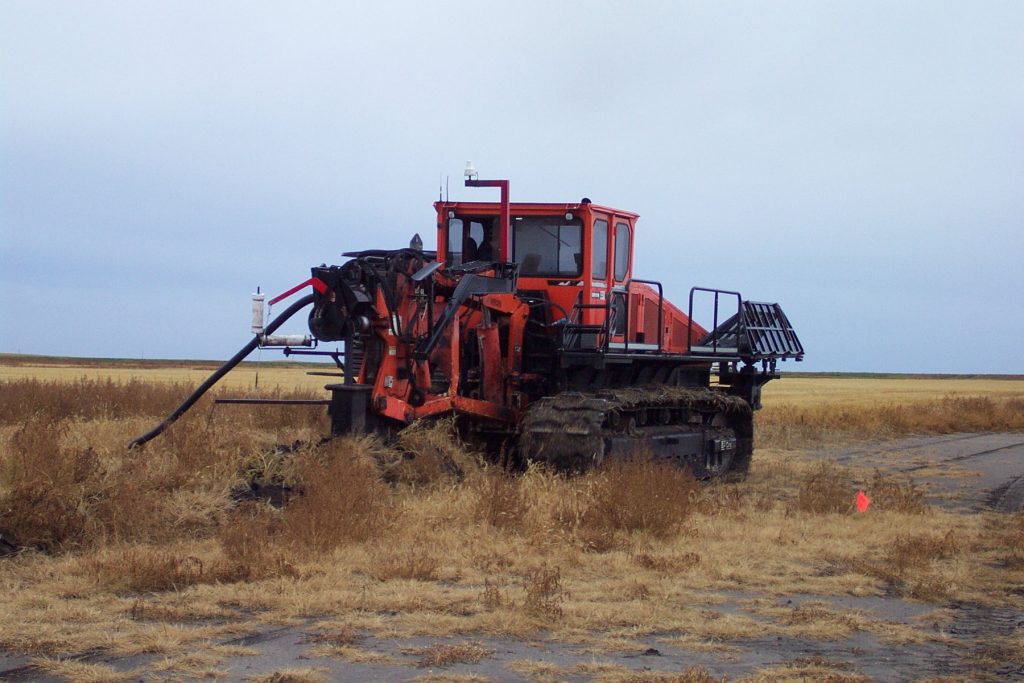
News
Drainage Management Systems
NSDU tile drainage design workshop set for March 10
March 3, 2020 By NDSU Agriculture Communication
 A tile plow installs drainage tiles near Devils Lake. Photo courtesy of NDSU.
A tile plow installs drainage tiles near Devils Lake. Photo courtesy of NDSU. North Dakota State University Extension’s annual Tile Drainage Design Workshop is set for March 10 in Loftsgard Hall, the NDSU Department of Plant Sciences building, in Fargo.
“The workshop is intended for producers and others interested in understanding planning and design principles, practices for tile drainage, utilizing subirrigation and managing the water table with control boxes,” says Hans Kandel, NDSU Extension agronomist and workshop co-organizer. “Participants in the past included agricultural producers, landowners, drainage contractors and consultants, staff from government agencies and water resource managers.”
The workshop will focus on the planning and design of agricultural tile drainage systems, including water management structures and lift stations, to meet farm profitability goals and environmental objectives. The course content is taught interactively with emphasis on group learning and ample time for discussions.
Workshop topics include:
- Drainage principles, soils and agronomic considerations
- Drainage design fundamentals
- Online drainage design tools
- Hands-on drainage design project
- Team drainage project
- Lift stations and subirrigation options
“A well-designed tile drainage system for a particular field will operate almost maintenance free for many years,” says Tom Scherer, NDSU Extension agricultural engineer and workshop co-organizer. “Managing the amount of water leaving the field via subsurface tile is essential. Pumps and control structures can be utilized to manage the out-flow of water from the tile line.”
Kandel adds, “Most of our agricultural crops perform poorly in saturated soil conditions. Reducing the excess water is crucial for optimal crop production. A tiled field with the option to control the water table will give farmers a means to reduce production risk due to situations where there may be excess water or not enough.”
The early registration fee is $90, which includes materials and lunch. The workshop is limited to 40 participants. Due to seating limitations, on-site registration will not be available on the day of the event. Visit the event page to register for the workshop.
Print this page